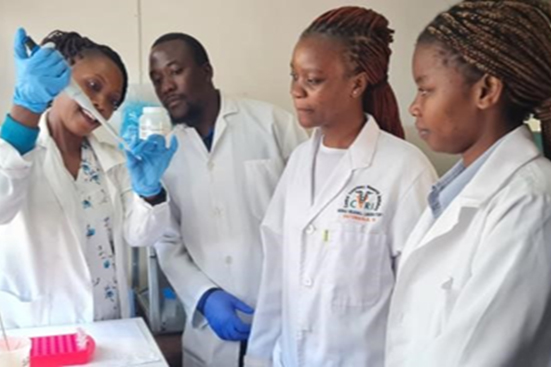Enhancing Zambia's animal health systems and service delivery through mentorship
Zambia has made important progress in strengthening its veterinary laboratory diagnostic services by introducing internationally recognized Quality Management Systems (QMS) aligned with ISO/IEC 17025 standards. This initiative, aligned with the World Organization for Animal Health's Performance Veterinary Services Critical Competency II-1.C on Laboratory Quality Management Systems, improves the reliability of laboratory results, enhances disease surveillance, and contributes to national and regional health security.
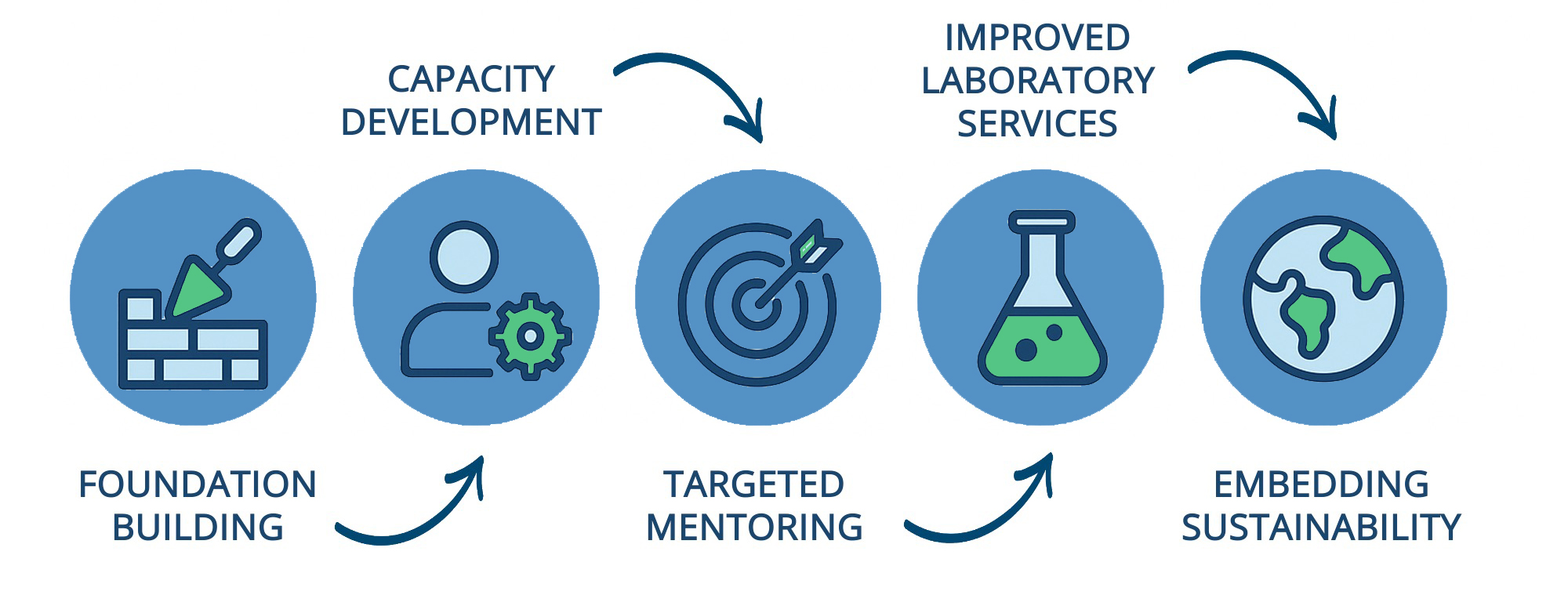
Step-wise approach for enhancing Zambia's veterinary laboratory service delivery capacity and capability
Building the foundation for reliable diagnostics
Accurate, credible and timely laboratory results are essential for detecting, controlling, and preventing animal diseases at source. For many years, Zambia’s provincial veterinary laboratories operated without internationally recognized QMS, limiting the credibility of diagnostic results, constraining disease surveillance, and creating challenges for trade in live animal and animal products.
To address these gaps, the Ministry of Fisheries and Livestock in collaboration with FAO through a Pandemic Fund project, introduced a country-led systematic approach to align and sustain veterinary laboratories with ISO 17025 principles and practices, building capacity for reliable and trusted diagnostic services. The initiative focused on strengthening both technical skills and institutional systems through targeted mentorship.
Mentorship and capacity development
Out of seven veterinary provincial laboratories, three were selected for mentorship – Choma, Chipata and Ndola. Mentoring prepared the team for the accreditation process for diagnostic tests, such as the rabies fluorescent antibody test, brucellosis rose Bengal test, and trypanosomiasis diagnostics. In addition, 21 laboratory staff (11 women and 10 men) from seven provincial laboratories, four district facilities and the Central Veterinary Research Institute (CVRI) were trained on the principles of ISO 17025 QMS. As result, CVRI expanded its molecular diagnostic capacity for rabies, anthrax, and highly pathogenic avian influenza (HPAI), diseases that present risks to both animal and human health.
To reinforce this progress laboratories have been enrolled in proficiency testing schemes, staff have received training in method validation, and QMS manuals were updated. Regular in-person and virtual backstopping sessions and mentoring provided continued technical guidance.
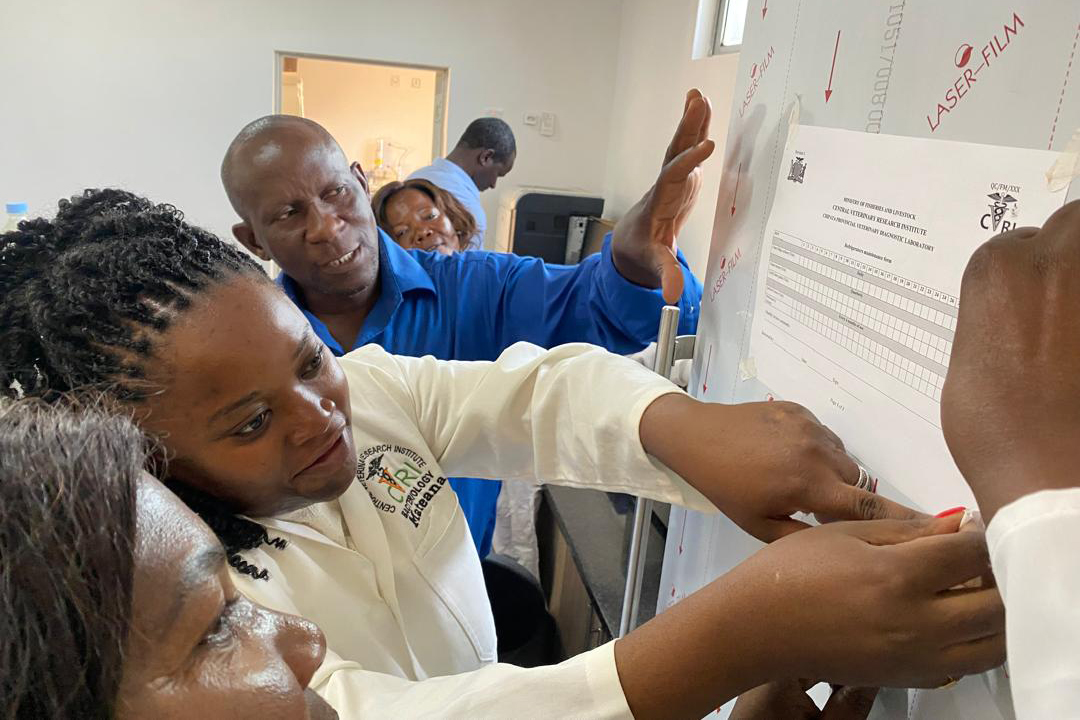
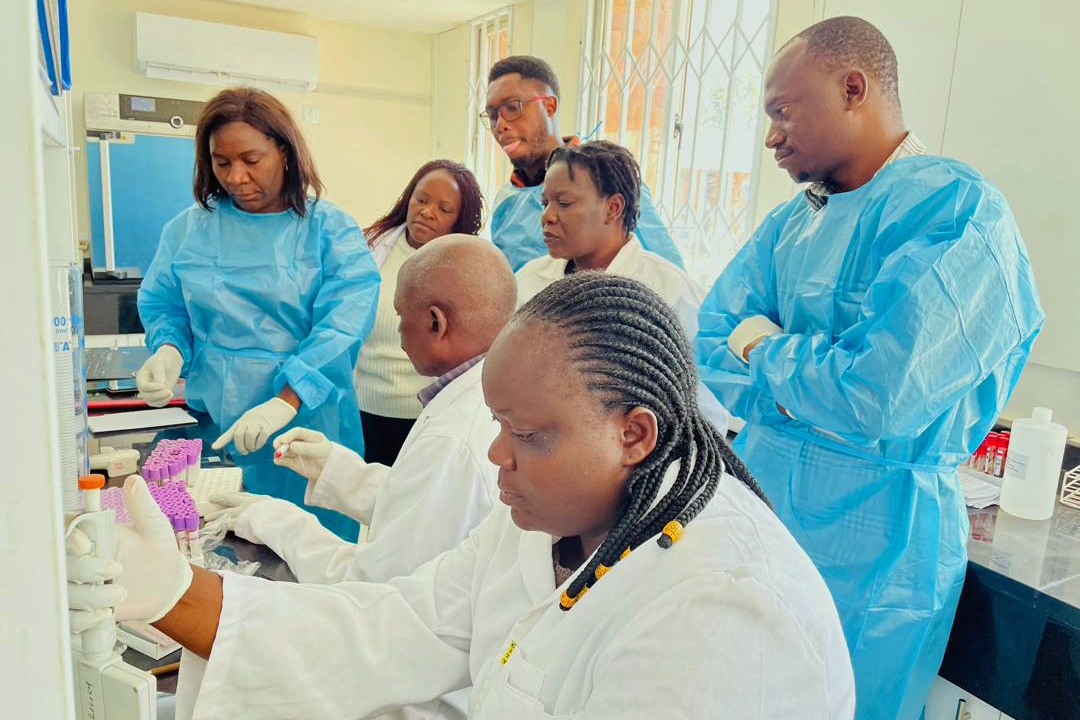
Regional and global significance
By implementing ISO 17025 QMS and mentoring, Zambia's veterinary services are building workforce capacity and a reliable diagnostic system that is nationally recognized and internationally credible. Strengthened laboratory services play a vital role in One Health by supporting early disease detection at the animal–human interface, facilitating safe trade, and contributing to pandemic prevention, preparedness, and response.
Zambia's transformation demonstrates that combining targeted mentorship with strong institutional commitment creates a powerful mechanism for transferring laboratory knowledge and skills to veterinary service teams. This systematic approach – integrating both virtual and in-person mentorship – has proven effective in strengthening Quality Management Systems governance at the sub-national level. The benefits extend far beyond animal health, contributing directly to enhanced food security and strengthened global health security.
Find out more
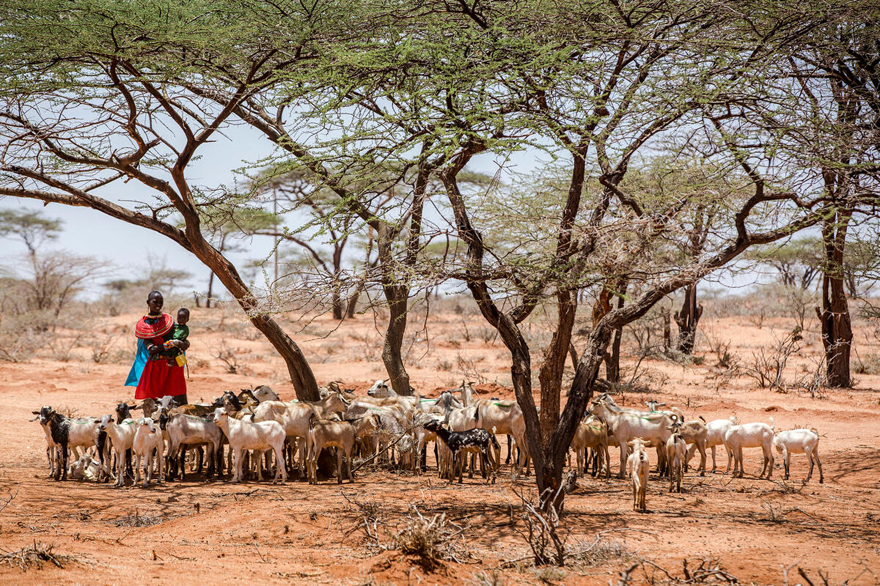
Projects
The Pandemic Fund
FAO is co-leading the implementation of 32 Pandemic Fund projects worth over USD 165 million aimed to boost local and global health security.
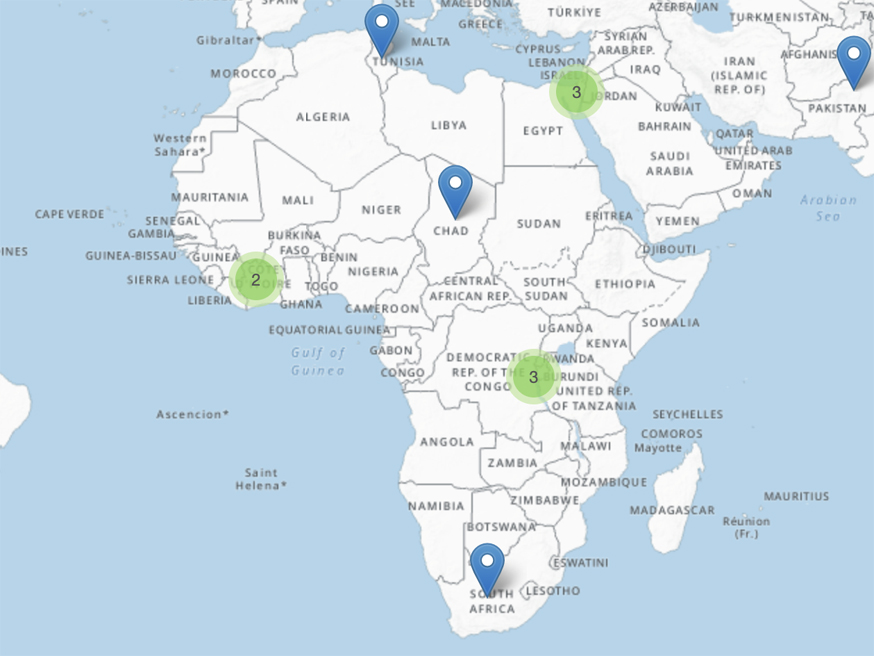
Projects
Pandemic Fund projects
FAO is co-leading the implementation of 32 Pandemic Fund projects worth over USD 165 million aimed to boost local and global health security.

